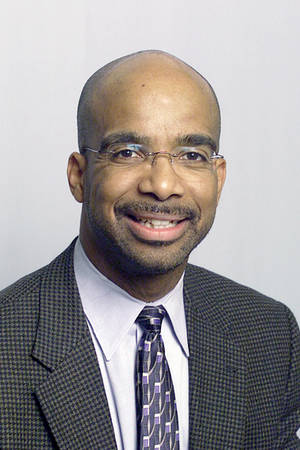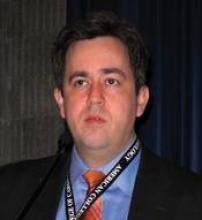CHICAGO – Five years of uncertainty about nesiritide’s safety for treating acute decompensated heart failure came to an end, as results from a multicenter trial with more than 7,000 patients proved the drug does no harm.
The results also showed that nesiritide had, on average, a marginal beneficial effect for improving patients’ dyspnea, with no apparent benefit at all for reducing 30-day mortality or need for rehospitalization.
But the findings provided enough evidence to allow the drug to regain a place in the otherwise skimpy armamentarium for treating acute decompensated heart failure, a second-line agent to fall back on when more standard agents,
diuretics and vasodilators, fail to give patients adequate relief, experts said. They also speculated that somewhere in the varied mix of acutely ill heart failure patients lies a patient subgroup that stands to gain significant benefit from nesiritide treatment. The only problem will be how to find those patients.
"Nesiritide can now be considered a safe therapy in patients with acute heart failure," Dr. Adrian F. Hernandez said at the annual scientific sessions of the American Heart Association. Further analysis of the study findings "is likely to permit better understanding of ... patient profiles that may potentially benefit from nesiritide," added Dr. Hernandez, a cardiologist at Duke University in Durham, N.C.
"I think there will be a wide divergence of opinion on the role of this drug," said Dr. Mariell L. Jessup, professor of medicine and medical director of the Heart and Vascular Center at the University of Pennsylvania in Philadelphia. "If physicians want a drug that will fundamentally change the outcome of their patients’ acute decompensated heart failure, then there is no role for nesiritide. However, if a patient is suffering and continues to be very dyspneic there may be a role for adding nesiritide to current treatment. If the patient does not respond to the traditional drugs, diuretics and vasodilators, then physicians may very well reach for nesiritide to see if it will benefit the patient," she said in an interview.
"The question was: Is nesiritide safe? Does it increase mortality or cause renal failure? Now that we know it’s safe, the focus will be on [determining which] are the right patients to get it. The study showed a small average benefit, and somewhere in there is probably a smaller population who benefits," commented Dr. Alfred Bove, a cardiologist and heart failure specialist at Temple University in Philadelphia and immediate past president of the American College of Cardiology.
The cloud that hung over nesiritide dated back to a pair of meta-analyses published by Dr. Jonathan D. Sackner-Bernstein 5 years ago (JAMA 2005;293:1900-5 and Circulation 2005;111:1487-91). Those analyses suggested that nesiritide treatment of heart failure patients linked with an excess risk for death and renal failure. The reports led to a "meteoric" drop in the drug’s use, said Dr. Robert M. Califf, professor of cardiology at Duke University, who collaborated with Dr. Hernandez in running the new study. It also led the company that markets nesiritide, Scios, to form a panel of experts to review the evidence.
The panel recommended a pair of studies to test the drug’s safety and efficacy. Results from the first of those studies, the Second Follow-Up Serial Infusions of Nesiritide (FUSION II), failed to find any evidence that regular infusions of nesiritide helped heart failure patients (Circ Heart Fail 2008;1:9-16). Dr. Hernandez’s new report results from the second of those studies, designed to test nesiritide’s safety and efficacy for treating acute decompensated heart failure.
The Acute Study of Clinical Effectiveness of Nesiritide in Decompensated Heart Failure (ASCEND-HF) randomized 7,141 patients at 398 sites in 30 countries, including 214 centers in North America. It enrolled patients hospitalized for acute decompensated heart failure within 24 hours of when they began intravenous therapy. Patients had dyspnea at rest or with minimal activity, and either a respiratory rate of at least 20 breaths per minute or rales at more than a third of bases. Patients also needed at least one objective measure of their disease severity, such as elevated brain natriuretic peptide or a history of a left ventricular ejection fraction of less than 40% within the past year. The study exclusions included patients with hypotension at baseline and those with acute coronary syndrome.


